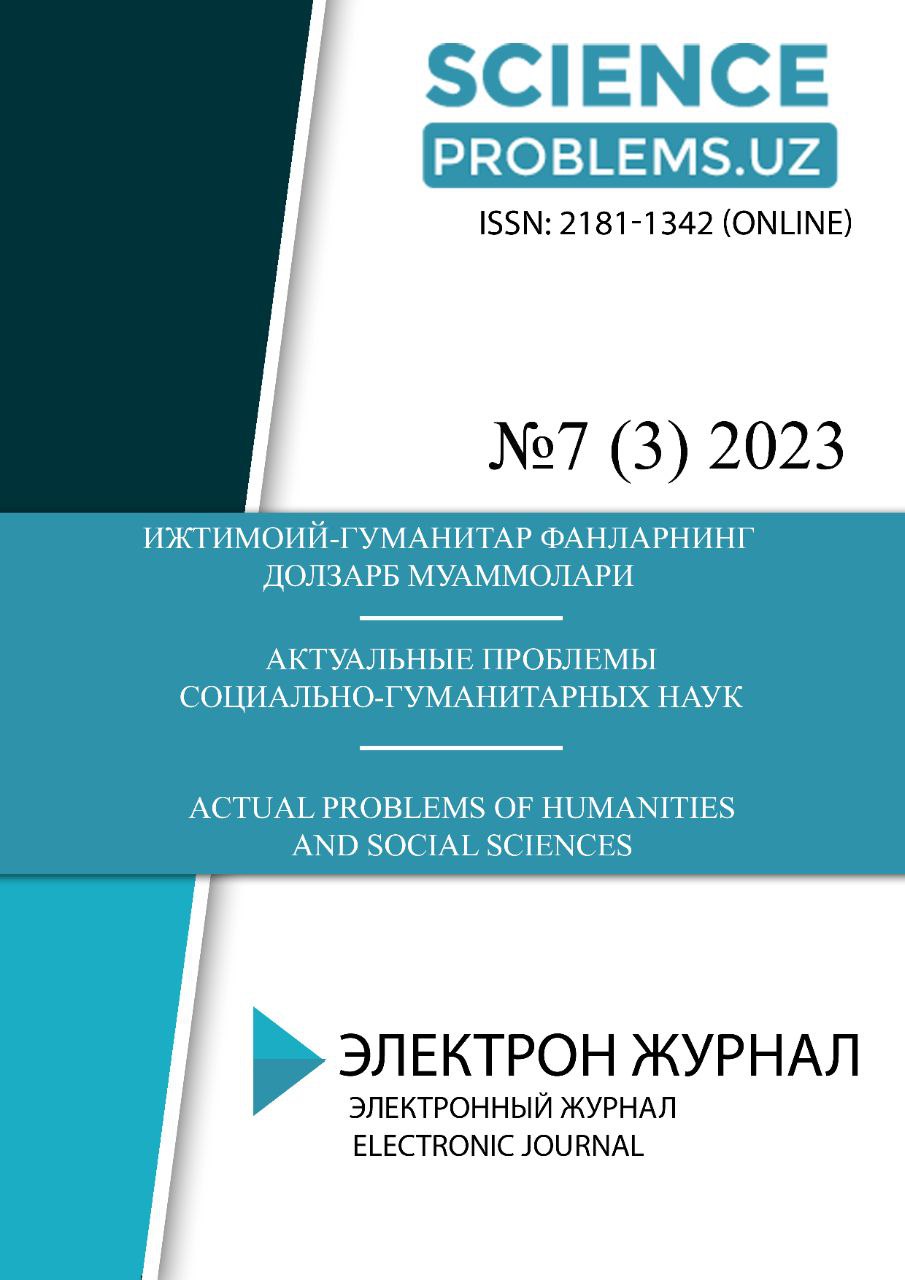RATIONAL USE OF WATER RESOURCES IN ACHIEVING SUSTAINABLE DEVELOPMENT GOALS (LEGAL ASPECTS)
DOI:
https://doi.org/10.47390/SCP1342V3I7Y2023N27Keywords:
water resources, clean drinking water, ecological standards, sanitary standards, right to life, right to have a comfortable environment.Abstract
The article analyzes the legal aspects of ensuring the availability of clean water and sanitarion for the population, which is one of the main goals set by the UN Sustainable Development Program. The author studied the state of the water legislation of the Republic of Uzbekistan, the regime of water protection zones, the rights of water consumption and water use, and the current legal regime of groundwater use are analyzed.
References
https://uza.uz/uz/posts/dunyoda-suv-kanalizaciya-muammosi-va-insonlar-hayoti_443983
Environmental law Dimensions of Human rights, Ben Borer, The several contributors 2015, p. 180-196.
Fundamentals of Environmental Law and Compliance, Daniel T. Rogers, CRC Press Taylor & France Group 2023, p. 377-391.
Narzullaev O.Х. Xalqaro ekologiya huquqi. O‘quv qo‘llanma. [International environmental law. Textbook] Tashkent: TDYU, 2022, 82-96 p.
Abanina Ye.N. Ekologizatsiya kak protsess dostijeniya ustoychivogo razvitiya. [Ecologization as a process of achieving sustainable development].Vestnik Saratovskoy gosudarstvennoy yuridicheskoy akademii. 2018,
no 3 (122), p. 201.
Xolmo‘minov J.T. O‘zbekiston Respublikasi Prezidenti Shavkat Mirziyoevning ekologik xavfsizlikni ta’minlash, agrar va energetika sohasini rivojlantirishga oid konseptual g‘oyalarini o‘rganish.
O‘quv-uslubiy qo‘llanma. [To study the conceptual ideas of the President of the Republic of Uzbekistan, Shavkat Mirziyoyev, regarding the provision of environmental security, the development of the agricultural and energy sector. Educational-methodical manual.] Tashkent: TDYU, 2020, 31-91p.
https://president.uz/uz/lists/view/5774
Skripnikov N.K. Transgranichnoe vodopolzovanie v sentralnoy Azii (pravovoy aspekt) [Transboundary water use in Central Asia (legal aspect)]. Tashkent, TSUL, 2004, 102 p.
Suv huquqi. Darslik. Mualliflar jamoasi. [Water law. Textbook] Tashkent: TDYuI, 2011, 67-88 p.
Jumanov A.О. Aholini toza ichimlik suvi bilan ta’minlashning ekologik-huquqiy muammolari. Yuridik fanlar bo‘yicha falsafa doktori (PhD) dissertatsiyasi avtoreferati. [Environmental and legal problems of providing the population with clean drinking water: Doctor of Philosophy (PhD) Dissertation in Legal Sciences] Tashkent, 2019. 49 p.
International environmental law / Pierre-Marie Dupuy (Graduate Institute of International Studies, Geneva), Jorge E. Viñuales (University of Cambridge). Cambridge, United Kingdom : Cambridge University Press, 2018. p. 583-648
Ilyasova M.T., Akimjanova T. Pravovie voprosi oxrani okrujayushey prirodnoy sredi ot zagryazneniya toksichnimi veshestvami [Legal issues of environmental protection from pollution by toxic substances]. Vestnik KazNU, 2008, no 8, p. 23.
Jumanov A.О. Aholini toza ichimlik suvi bilan ta’minlashning ekologik-huquqiy muammolari. Yuridik fanlar bo‘yicha falsafa doktori (PhD) dissertatsiyasi avtoreferati. [Environmental and legal problems of providing the population with clean drinking water: Doctor of Philosophy (PhD) Dissertation in Legal Sciences] Tashkent, 2019. 49 p.
Ekologiya huquqi. Darslik. Mas’ul muharrir: prof. Xolmo‘minov J.T. [Еnvironmental law. Textbook. Responsible editor: prof. Xolmo‘minov J.T.] Tаshkent, TDYU, 2019, 285р.
Law of the Sea, Environmental Law and Settlement of Disputes: Liber Amicorum Judge Thomas A.Tafsir Malick Ndiaye, Rüdiger Wolfrum, Liden/Boston-2007, p.1055-1131
Towards a Greener Economy in Uzbekistan. August 2022. The World Bank Group. –P. 90.








